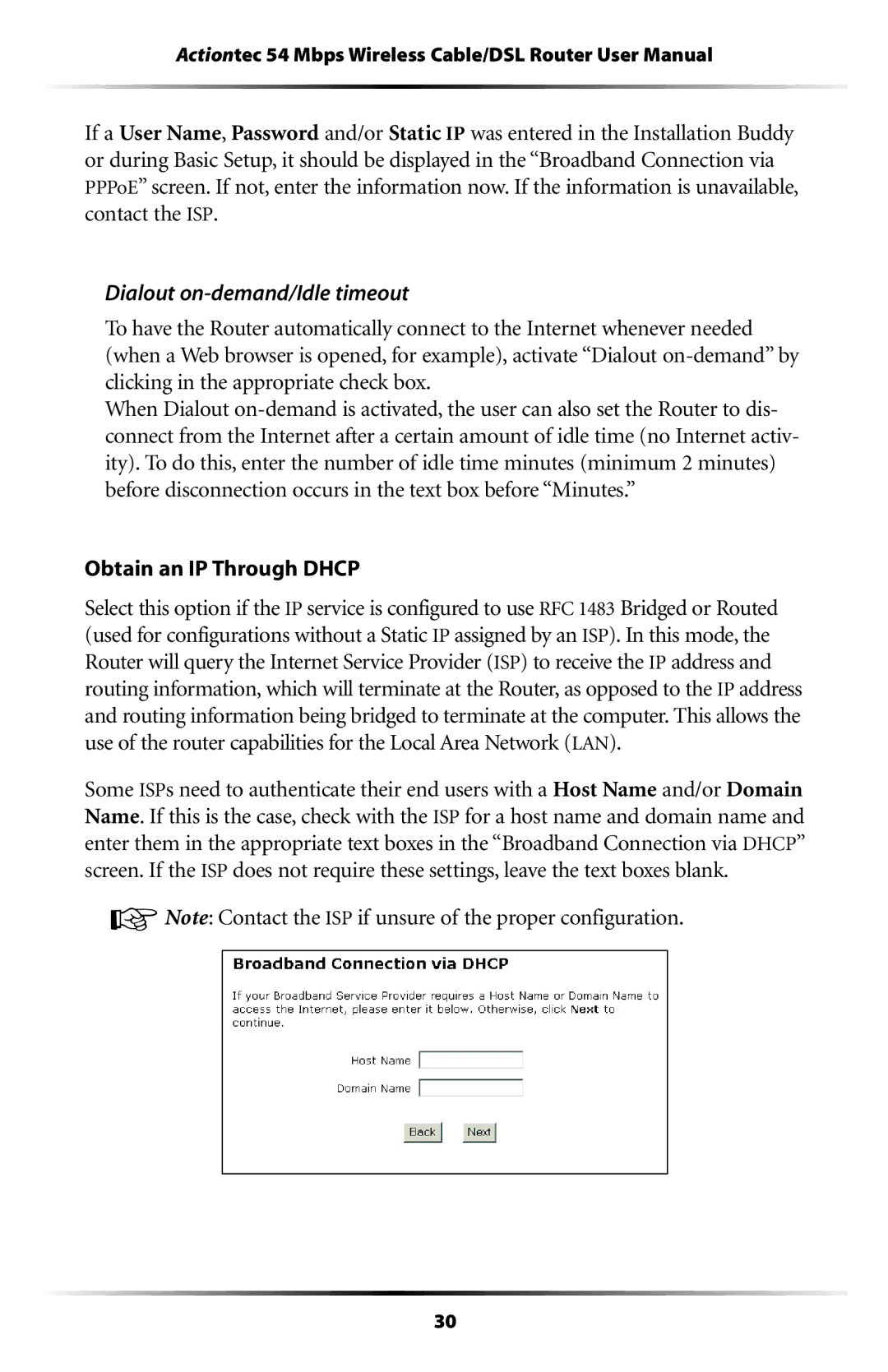
Actiontec 54 Mbps Wireless Cable/DSL Router User Manual
If a User Name, Password and/or Static IP was entered in the Installation Buddy or during Basic Setup, it should be displayed in the “Broadband Connection via PPPoE” screen. If not, enter the information now. If the information is unavailable, contact the ISP.
Dialout on-demand/Idle timeout
To have the Router automatically connect to the Internet whenever needed (when a Web browser is opened, for example), activate “Dialout
When Dialout
Obtain an IP Through DHCP
Select this option if the IP service is configured to use RFC 1483 Bridged or Routed (used for configurations without a Static IP assigned by an ISP). In this mode, the Router will query the Internet Service Provider (ISP) to receive the IP address and routing information, which will terminate at the Router, as opposed to the IP address and routing information being bridged to terminate at the computer. This allows the use of the router capabilities for the Local Area Network (LAN).
Some ISPs need to authenticate their end users with a Host Name and/or Domain Name. If this is the case, check with the ISP for a host name and domain name and enter them in the appropriate text boxes in the “Broadband Connection via DHCP” screen. If the ISP does not require these settings, leave the text boxes blank.
☞Note: Contact the ISP if unsure of the proper configuration.
30
